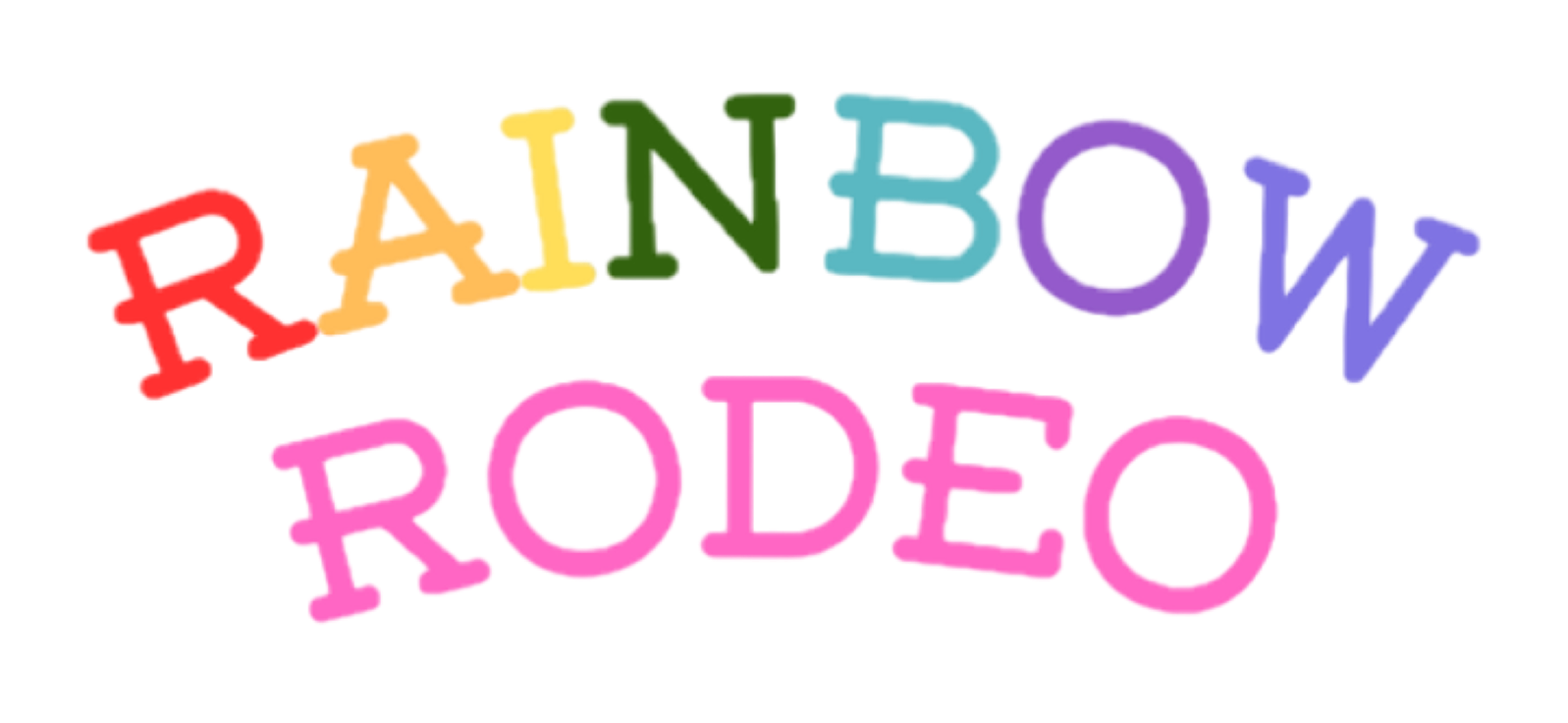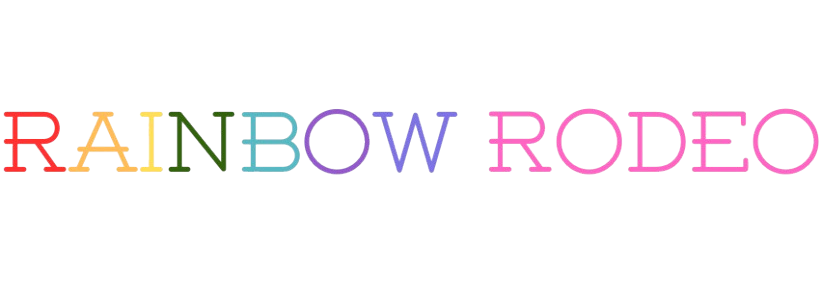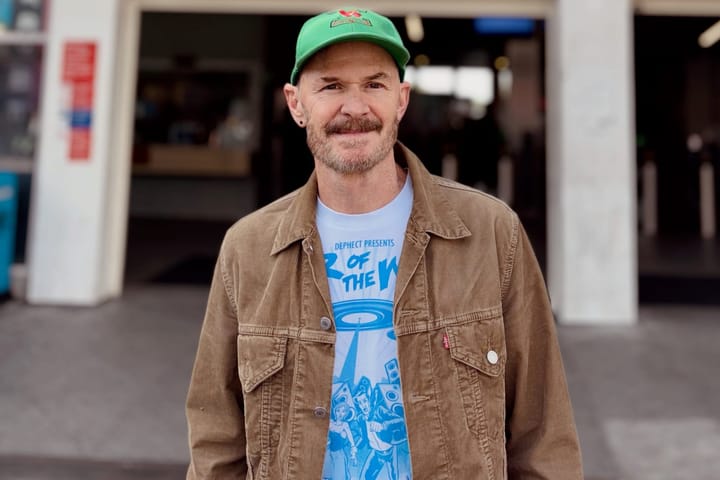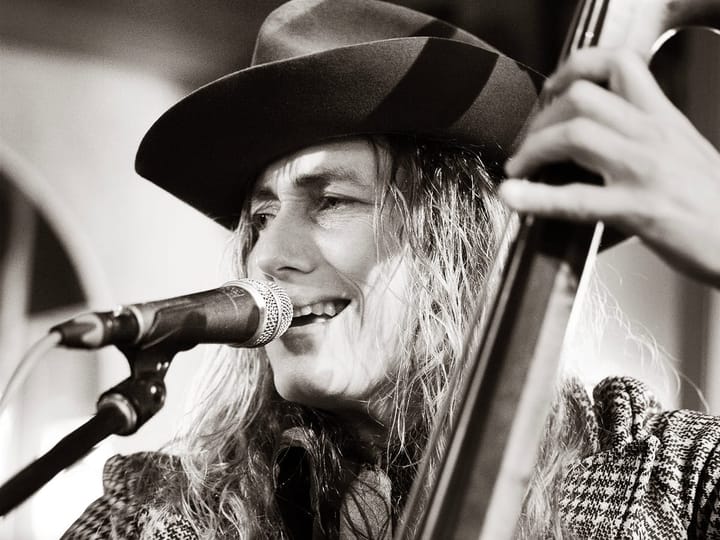INTERVIEW: The Crane Wives Commit to Healing Spaces for Queer Fans
The Crane Wives create safe spaces for their queer audiences with intentionality and a fierce moral strength.

Queerness has always occupied a liminal space in the folk and Americana scenes. Few bands have done as much to balance traditional folk storytelling, roots music, a contemporary approach to genre mashing, and queer themes than Michigan’s The Crane Wives. The band's recent album Beyond Beyond Beyond is a transcendent and intricately crafted masterwork. Rainbow Rodeo sat down with the band to discover more about inclusivity, own stories, mental health, and much more. Co-leads Emilee Petersmark and Kate Pillsbury, as well as drummer Dan Rickabus, were more than generous with their answers.
There was something transgressive about The Crane Wives from the get-go that separated you from your indie folk contemporaries. What was your intent when first starting the band and did you have any kind of a mission statement?
Emilee: I don’t think we ever had a kind of mission statement or overarching intent beyond writing and performing music that came from an honest place. We were barely out of school when we started the band— for me, I struggled to find a job that paid the bills and allowed me to express myself the way I wanted, but the band allowed me a safe space to explore my identity through my writing, saying what I wanted to say and presenting how I wanted to present.
Kate: The economy was in dire straits when we formed the band. We had all gone to college with the belief that being responsible and getting degrees would lead to financial security, and yet when I graduated, there were very few jobs and they paid $8-10 an hour. There’s nothing quite like an economic recession to destroy your faith in the systems of power. Between that and deconstructing from religious indoctrination, I had some things to get off my chest, and The Crane Wives cultivated a space where we could speak our minds.
Dan: As a drummer, harmony singer, and co-producer, my main goal, especially at the beginning of the band, was to serve these amazing songs that Emilee and Kate were sharing as gifts to the group. So many of their lyrics were pushing against norms, challenging definitions and expressing deep feelings through metaphor. The song “Counting Sheep” was one of the earliest Kate tunes we worked on, and as I’m reminiscing about it now, I’m realizing how foundational social commentary has been to the band. In that song, the juxtaposition of searingly critical lyrics with light, bouncy, major key folk music creates a really potent tension that I love. I think the uniqueness of the lyrics pushed me to think outside of the box with what tones I was contributing in the percussion landscapes.
Your music pulls from your disparate tastes, does this also extend to all your identities and lived experience infusing the songs?
Kate: I’ve come to think of songwriting as being akin to the therapeutic practice of Internal Family Systems, wherein our individual identities are made up of many different internal voices that each have different roles in protecting us. Sometimes your feelings get hurt and you approach a song from that place, where the part that is lonely and isolated needs to yell about it. Sometimes you approach a song from further down the line in a conflict, when you’ve come to a place of acceptance. I think the act of songwriting helps us detach from the stories our egos tell us–you give it time to say its piece and then you move on from it.
Each album builds on the last, presenting a kind of alternative America – one that not only has room for everyone, but actively welcomes them. Firstly, how do your politics shape your songwriting and, moreover, how do you decide how much is too much when it comes to putting politics into your songs?
Emilee: Politics inform our writing the same way they inform our lives— for some of us simply existing as we are makes our identity political, and of course that informs our work. I personally don’t feel there is a limit to how much political content we should put in our work, because those issues impact us and the people we love.
Whilst undoubtedly drawing on traditional folk and Americana influences, your music is powerfully contemporary. As a trans and queer listener, this serves as a powerful reminder that we’ve always been here, will always be here, and there’s places like your music to call home. How intentional was balancing the old and new, or do your songs simply turn out that way?
Dan: The writer/thinker/speaker adrienne maree brown introduced me to this idea of science fiction as liberation. She studies legendary queer authors like Octavia E Butler, and Ursula K LeGuin, and how their imagining of new societies, planets, relationships and stories empowers people in real life to imagine beyond their conditioning and the limitations of their environments. I hope, and like to think, that by daring to think of new dominations of sound, we’re doing something similar to what science fiction does. We’re taking very old forms in music, using very old instruments, and trying to push and challenge possibilities. I hope that those efforts can keep resonating with our queer listeners as they bravely assert their authentic identities in a society that, historically, hasn’t been able to imagine those possibilities yet.
I’ve always loved the fact that we never talk about genre words when we collaborate to create the music together. We hardly ever even talk about what artists we’re channeling when we write our parts! Each of us individually is a big collage of all of the art that we love, in music and beyond. I read this amazing little book called Steal Like an Artist by Austin Kleon that I’d recommend to readers. It’s all about how to honor your influences by bringing so many of them in at once that they all blend together to a complex new hue. I think the four of us have always done that naturally, since we each individually have such a vast range of influences from the whole span of music history.
The rest of this interview is accessible to paid subscribers and will appear in the spring 2025 issue of the Rainbow Rodeo zine.




